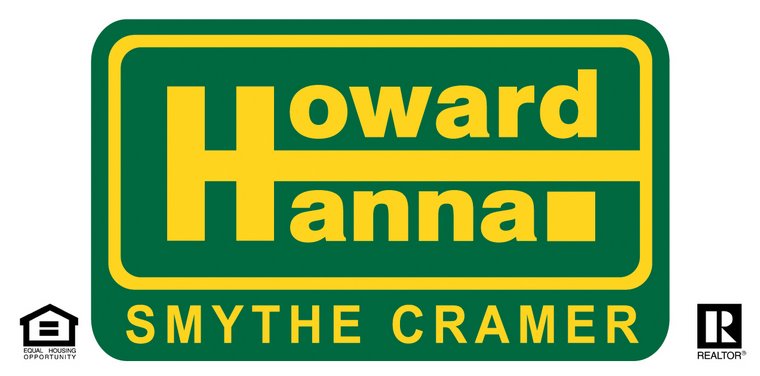Predatory Lending History and Issues Discussed by Professor Kathleen Engel at 'Meet The Bloggers' Coffee House Discussion
Gypsy Coffee House in Cleveland's West Side was the scene of a fascinating and lively discussion and was a 'Meet the Bloggers Event'. I had another meeting and left before I was able to get all the blog info from participants but people like Jeff of YellowDogSammy and George of BrewedFreshDaily were there among others. A shout out to the organizers of this event. Manager Mark and I were very pleased to be at this informative session.
The focus was on predatory lending and Kathleen Engel, esteemed Professor at Cleveland's Marshall Law School was our guest. We've heard a lot about predatory lending and like all of you, the practice makes my blood boil. Kathleen Engel and a colleague, Patricia McCoy (Law Professor at University of Connecticut) have written a wonderful paper called Turning a Blind Eye. It's well worth the read. Professor Engel was instrumental in working and initiating the predatory lending laws proposed for Cuyahoga County.
Why are we in this mess and what does it all mean? Synopsis according to Professor Engel: Once upon a time, if you wanted a loan, you provided proof that you could make loan payments. You were given a loan based on what you could afford to pay each month on the loan.
These loans were 'prime' loans or standard loans. There were FHA and VA loans which could be considered sub prime because people can get those loans with no money down, but what happened (I think in the 80s) was the rise of a private, conventional sub prime loan market.
This was a 'make money for Wall Street' idea, to put it in simple terms. Entrepreneurial (to be kind) financial types decided loans could be sold on the open market so that the original loan holders no longer had a stake in the outcomes. Ms. homeowner gets a loan from one company and before you know it, her loan payment forms are changing names faster than you can say 'sold on the open market'. I remember loans like that, as a homeowner in Maryland.
Anyway, Kathleen Engel focused on fiduciary responsibility, or in other terms, the loan providers legal and moral responsibility and to whom. When you get a prime loan that stays in house, or with the person you bought the loan from, they have a responsibility to you AND their own lending institution. Once the loan is sold, that loan just becomes a commodity in a sub prime market and their responsibility is only to their shareholders. Can you see why we got into this mess?
Now we have people with 125% loans (PLEASE do not ever get a loan like that) in a market where your home is not worth 125% of it's original sale price.
And when the loan payment becomes too high - because really you should have waited a year or two to save money and not GET a 125% loan - you want to sell your house and then don't understand why it can't be listed and sold at a price that matches your mortgage.
To me it's almost like a bait and switch program. But those in the field are much more adept at explaining this than I am. So read Turning a Blind Eye.
Interestingly enough, Brian Brady, one of my pals and fellow bloggers, is a mortgage lender and an insightful one at that. He has a fantastic post explaining this scenario in detail. It's called Bad Loans Buried in the Back of the Breadbox and also explains how we got into this mess.
What's the answer? Save your money and buy a home the old fashioned way: when you can afford it? Or at least keep in the back of your head: if it seems to good to be true, it probably is.
Peace Out - 3C






5 comments:
A few comments:
1- Lenders don't have and never have had a fiduciary relationship with a borrower unless an exclusive financing or brokerage contract is established. Borrowers are unwilling to give up the "shopping" aspect so they will forever be at mercy of the market.
2- There is nothing wrong with 125% loans. Most lender won't pursue judicial foreclosure so the borrower really get a chance to spend the future equity with little or no risk; they transfer the appreciation risk to the lender.
3- Those two statements having been established, your concluding argument still makes the best sense for homeowner. If it looks too good to be true, it probably is.
I can sell the smartest borrower on the silliest loan and make it sound quite rational. Debt is the crack of the millenium.
To quote a beautiful first lady and remarkable American icon.."Just Say No.
I understand why you say 125% loans are okay; any loan is okay IF (and a big if) you can afford it.
I know for a fact (being a history buff) that 'back in the day' the guy at the bank knew the name of his clients, and was willing to work with them, up to a point, when issues arose. And I'm not talking pre 1929, or The Depression. I'm talking the 70s. Then things changed. Maybe I'm wrong, but if I owe you money and you hold the loan, we have a financial contract and a fiduciary responsibility exists. At least that is how it's always been explained to me. I'm open to hearing why that may be an incorrect term though. And thanks Brian, your post was a great read.
"if I owe you money and you hold the loan, we have a financial contract and a fiduciary responsibility exists."
No, CC; you just owe me money. You have no responsibility to make sure that I can afford it.
We have to have a contract for me to search and find you a good loan that establishes a fiduciary. Mortgage brokers don't have those contracts with borrowers and won't unless a borrower gives an exclusive right to brokerage contract. (illegal for residential in California)
Who Killed Cleveland? You see him every time you go to the bank.
Link to story in Cleveland Scene:
http://www.clevescene.com/2007-08-29/news/who-killed-cleveland/
I have a lot of respect for Seifert's organization; I appreciate the link to this article; it's hard for me to paint all banks and lenders with the same brush, but the article is worth a read. What is very true is that everyone waited way too long (in the banking industry) to jump in and correct the situation. Thanks for commenting.
Post a Comment